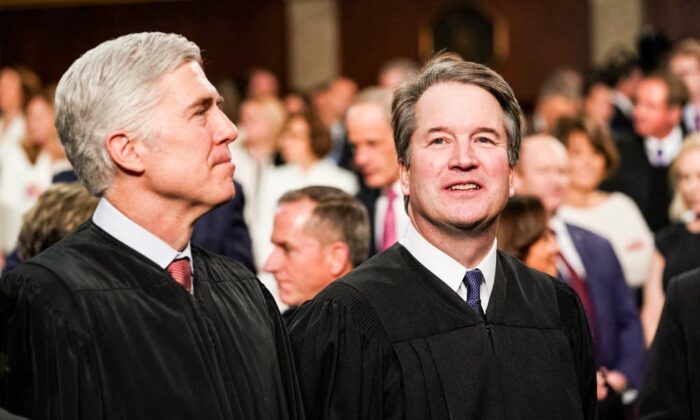Justice Brett Kavanaugh warned during Thursday’s deliberations at the U.S. Supreme Court that the outcome of former President Donald Trump’s immunity claim has significant implications for the presidency, the future of the presidency, and the future of the country. He expressed concern that a decision in this case could determine whether future presidents are shielded from malicious prosecution that could potentially disrupt the presidency.
During the two-and-a-half hours of oral arguments on April 25, the Supreme Court justices appeared skeptical of a ruling by a federal appeals court that denied President Trump’s claim of absolute immunity from criminal charges related to his official acts as president. President Trump faces charges of conspiring to overturn the 2020 election results, indicted by special counsel Jack Smith in August 2023.
The central question before the Supreme Court is whether a former president enjoys presidential immunity from criminal prosecution for conduct involving official acts during their time in office. The justices debated the implications of imposing limits on the prosecution of former presidents, with Justice Kavanaugh highlighting the potential for a cycle of malicious prosecutions that could impact future presidencies.
Former Deputy Solicitor General Michael Dreeben argued that the framers of the Constitution did not intend for presidents to be above the law, emphasizing that the crimes President Trump is charged with were not part of his official duties. On the other hand, Attorney D. John Sauer argued for President Trump, stating that denying presidential immunity could fundamentally alter the presidency and hinder decision-making.
Justice Kavanaugh expressed concern about the risk of malicious prosecutions and the impact on the functioning of the presidency. He referenced past investigations during the Reagan, Bush, and Clinton administrations, suggesting that holding a president accountable is less important than preserving the presidency’s functionality.
The justices debated the potential consequences of the case, with Justice Kavanaugh warning about the dangers of vague statutes being used against a sitting president. He raised the issue of vindictive prosecutions and cited previous Supreme Court decisions that he believed had hampered presidential administrations. The implications of this case extend beyond the current situation, with Justice Kavanaugh emphasizing the need to protect the presidency from potential abuses of power.
Can you please reword this?
Source link





